Bloody Battles, Crazy-Long Books & Broadway: A (Sorta) Historically Accurate Timeline of Les Miserables
Les Miserables has officially returned to Broadway! But before you join the crusade, it's time for a little history lesson. Wait, don't leave! Even if you failed History class, you can get an A+ in Les Miserables trivia by reading our fun (and mostly historically accurate) timeline of the story, from the classic Victor Hugo novel to the celebrated musical by Alain Boublil and Claude-Michel Schonberg.
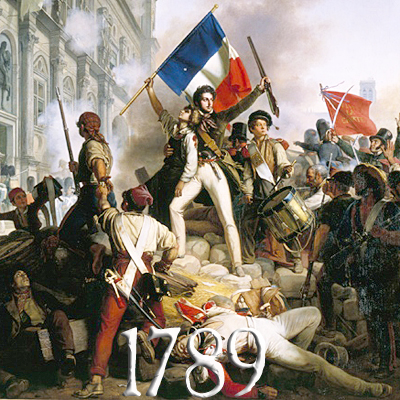
The French Revolution begins. This happens way before any of the stuff in Les Miz takes place, so if you overhear an old lady sitting in front of you in the theater telling her husband the musical is about “the French Revolution,” slap her in the face and challenge her to a duel.
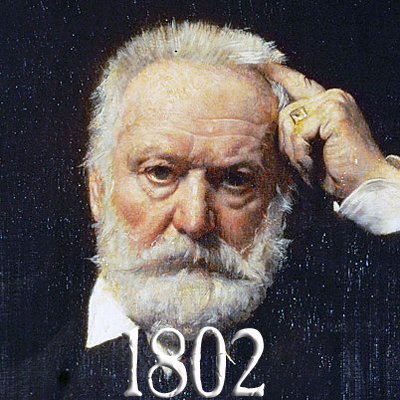
Les Miserables author Victor Hugo is born in Besancon, France. His father is a high-ranking officer in Napoleon’s army, while his mother is supposedly sleeping with General Victor Lahorie—he is executed for plotting against Napoleon by the time little Victor turns 10.
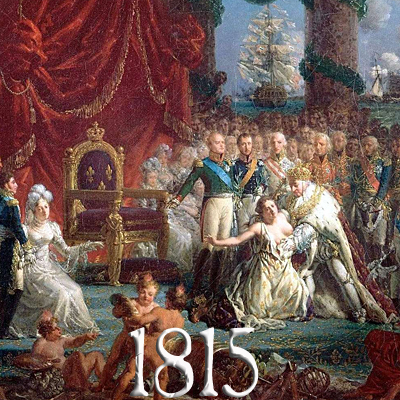
The Bourbon Restoration begins, and all those stuffy royals who were overthrown during the French Revolution return to power. This is also when all of the (fictional) stuff in Les Miz starts happening: Jean Valjean is released on parole, Cosette and Eponine are born, Fantine’s lover leaves (before autumn comes and all of those nighttime thunder tigers start showing up), etc.
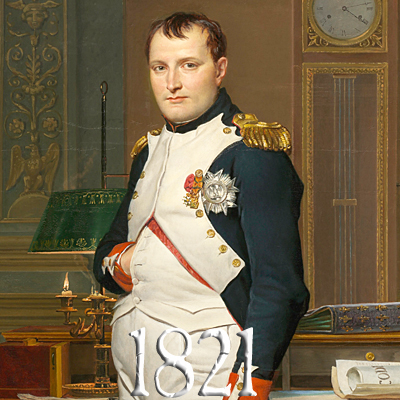
Napoleon Bonaparte dies, and those pesky Bourbons remain in power. This is right around the time Jean Valjean becomes the (fake) mayor of Montreuil-sur-Mer, foiling Javert even though he looks practically the same, just with longer hair and a beard.

Louis XVIII dies and is replaced by his brother, Charles X, who changes France’s political structure from a constitutional monarchy to a less democratic model. Boooo! In Les Miz, Jean Valjean raises Cosette as his own daughter, and she presumably does a lot of darning socks, needlepoint and other indoor activities.
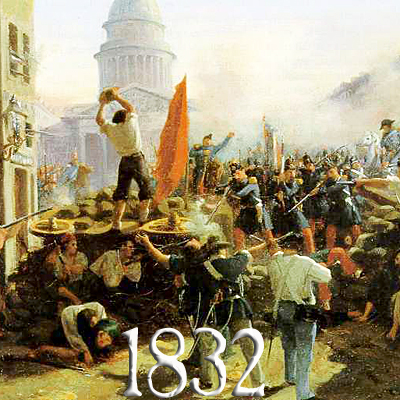
General Lamarque is dead! Revolutionaries build makeshift barricades all over the city and the June Rebellion begins—but things get crazy, French soldiers shoot everyone, and the whole thing lasts less than 24 hours. Meanwhile, Victor Hugo finds himself stuck in an alley for hours, hiding from the crossfire. In the book and musical, this is the battle that kills Enjolras, Eponine and Gavroche (and well, uh, pretty much everyone).

Well, the uprising fails and until 1848, when another revolution shakes things up, life is just as miserables as it was before. But in Les Miz, Cosette and Marius get married, hooray! Also, Jean Valjean dies. Noo! (In the book, Valjean passes away six months after the wedding, but he dies in the musical while Cosette is still wearing her wedding dress. You know, for drama.)

Les Miserables is published. It’s 85 billion pages. (OK, fine, it’s 1,488 pages, same thing.) A mob of political bookworms storm the stores in Paris, and all 7,000 copies sell out in 24 hours. Hugo, meanwhile, is living in exile in Belgium ever since having a bit of a tiff with Napoleon III (he openly called the ruler a traitor to France).
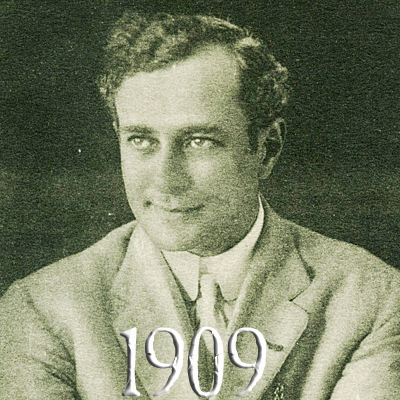
The first Les Miserables film adaptation is released, starring Maurice Costello (above) as Jean Valjean and William V. Ranous as Javert. It paves the way for 14 subsequent movies and TV shows based on the powerful story.
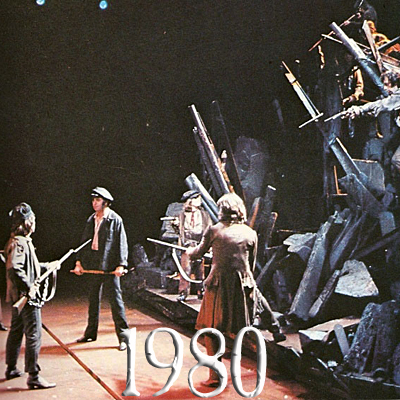
Composer Claude-Michel Schonberg and lyricists Alain Boublil and Jean-Marc Natel create a French concept album based on Victor Hugo's celebrated novel. Yeah, in French. The first stage adaptation is presented at the Palais des Sports, a Paris sports arena, where it runs for three months. A few years later, director Peter Farago gives Cameron Mackintosh the album and asks him if he would produce an English version. At first he's like, “I don’t know, guys,” but eventually he's into the idea.

Les Miserables opens at the Barbican Centre in London, starring Colm Wilkinson as Jean Valjean, Roger Allam as Javert, Patti LuPone as Fantine, Michael Ball as Marius, Rebecca Caine as Cosette and Frances Ruffelle as Eponine. The reviews aren't good. The Observer calls it “witless and synthetic entertainment.” The Telegraph describes it as “a lurid Victorian melodrama produced with Victorian lavishness.” But don’t worry—fans love it and it transfers to the West End's Palace Theatre.

Les Miserables opens at the Broadway Theatre, with Colm Wilkinson reprising the role of Jean Valjean. Frank Rich of The New York Times writes, “If anyone doubts that the contemporary musical theater can flex its atrophied muscles and yank an audience right out of its seats, he need look no further than the Act I finale of Les Miserables.” Damn right! The production nabs nine Tony Awards, including Best Musical, before transferring to the Imperial Theatre in 1990.

A new production of the now-universally beloved musical opens at Broadway's Broadhurst Theatre, only three years after the original New York production closed. The New York Times calls it "a premature revival," but Broadway audiences prove that they're not sick of hearing the people sing. What started as a six-month engagement turns into a two-year Broadway run.

Universal Pictures releases Les Miserables on the big screen, starring Hugh Jackman as Jean Valjean, Russell Crowe as ruthless inspector Javert, Anne Hathaway as desperate mother Fantine and Broadway mega-hunk Aaron Tveit as Enjolras. Helmed by Tom Hooper, the actors sing live on set, Hathaway cuts her hair for real (and wins an Oscar), and everyone eats oatmeal for months to get skinny.

Les Miserables returns to the Imperial Theatre, opening officially on March 23! A new, restaged version of the beloved musical directed by Laurence Connor and James Powell features a starry cast: Ramin Karimloo as Jean Valjean (who reprises the role after starring in the Toronto production), Will Swenson as Javert, Caissie Levy as Fantine, Nikki M. James as Eponine, Andy Mientus as Marius and Samantha Hill as Cosette. We are ready to storm the barricades once more. Are you?
